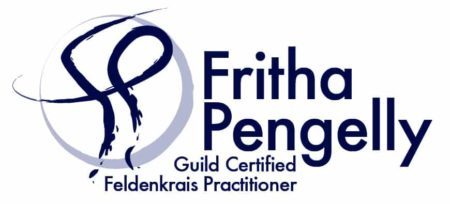Hi! If you are just joining us, this is the second post in a series analyzing Moshe Feldenkrais’s article, “Learning to Learn.”
While the first instruction was about time, specifically Go Slowly, the second is concerned with pleasure.
He writes:
Look for the pleasant sensation
Pleasure relaxes the breathing to become simple and easy. Excessive striving-to-improve impedes learning. It is less important to learn new feats of skill than it is to master the way to learn new skills. You will get to know new skills as a reward for your attention. You will feel you deserve your acquired skill, and that will add satisfaction to the pleasurable sensation.
As most of Feldenkrais’s writing, this may seem deceptively simple. There is a LOT here.
In fact, this is possibly the most un-American thing that’s ever been written. Each sentence mercilessly explodes another facet of logic that was hard-wired in most of us during childhood.
Let’s take it one sentence at a time.
- Pleasure relaxes the breathing to become simple and easy.
It’s generally accepted that stress is unhealthy. When we are under emotional stress we suffer in myriad physical ways. One negative (and often overlooked) effect of stress is its capacity to alter our breathing patterns. When we are anxious or nervous we may unknowingly take smaller breaths because we feel constricted in our chests. We may begin to breathe paradoxically. (Paradoxical breathing describes an abnormal chest movement, with your chest moving inward during inhalation rather than outward. This abnormal movement impairs the ability to effectively inhale, limiting the amount of oxygen you can take in. This can be problematic for various reasons we won’t go into here.)
Breathing is an incredibly intricate reflex that is governed by a delicate coordination of a sensory system, respiratory control, and an effector system. Successful breathing, in turn, regulates every other system in our body. Thank you, breathing!
Therefore if the regulation of breath is upset, we are likely to be suffering from all sorts of other difficulties. Feldenkrais’s second prompt opens with the idea that experiencing pleasurable sensations will restore our most essential function of breathing back to its most efficacious state.
- Excessive striving-to-improve impedes learning.
So there is a prerequisite to experiencing pleasure: the CEASING of striving-to-improve.
This may be one of the biggest impediments of people being able to enjoy Feldenkrais lessons. The urge, to DO BETTER is so compulsive, so deeply ingrained, that some people find letting it go to be uncomfortable or even impossible.
There two reasons why Feldenkrais believed that striving to improve impedes learning.
One is physical.
The other has more to do with the pscyho-emotional compulsion of trying to improve. (In fact, the third instruction on the “Learning to Learn” list is specifically about this fantastically interesting nugget of the evils of striving. Look for a deeper rumination on it in the next post in this series.)
The physical piece has more simply to do with how we use our muscles.
When we strive, or try, or work hard, we are employing habits of movement that we have come to depend on. These are the patterns we are comfortable with. We know their strength and the result they will yield.
There are innumerable moments that require us to deploy our habitual movement patterns—reaching for the cereal, catching a ball, hurrying to get out of the way of a speeding car, etc.
However, a Feldenkrais lesson is called a “lesson” and not a session, or a class, for a reason. The hope is that you—or at least your nervous system—will learn something it can use. In order for this to happen, your nervous system requires an opportunity to sense a new possibility of movement.
This is the opposite of its using a habitual pattern of movement.
Therefore, if we are striving, we are also eclipsing the opportunity to learn a new neural pathway for movement.
- It is less important to learn new feats of skill than it is to master the way to learn new skills.
The best way I understand this one is through my experience with my step-daughter.
As a younger kid she had a lot of difficulty learning in school. As you can imagine the problem compounded the longer she stayed in school. In fourth grade we pulled her out of school with the intention of putting her back into school for fifth grade. Therefore she had one gap-year in which to somehow magically make it so that she could succeed in school upon her return.
As the custodian of her education for that year I chose to create an environment in which she could discover her own learning style. Once she felt the ways that she could learn comfortably, she could then function in a different setting geared toward traditional learners.*
This is Moshe’s version of “it is better to teach a man to fish than to give him a fish.”
Once we can master the WAY to learn new skills—admit ignorance, cultivate curiosity, go slow, ask questions, etc.—then we can learn ANY skill.
*This story is a drastic over-simplification of everything that is true. And she is currently a very happy self-directed learner who thrives outside of traditional school.
- You will get to know new skills as a reward for your attention.
Here, when Feldenkrais writes “get to know new skills” he is talking about learning in an organic sense, much more the way a baby learns as opposed to learning in a more academic style.
You don’t teach a baby to roll over, sit up, crawl, walk, or talk. You may coo them on or play with them as they explore these things but they are simply attending to themselves.
For example a baby might be simply marveling at the sight of his own left hand as he reeeeaaaches over toward the right and then– ploop!– “Wait, what? I’m on my belly! That’s new… I rolled over! I’m on my belly! How did I do that? Can I do it again? Let’s see…” A new skill is acquired as a reward for his attention.
- You will feel you deserve your acquired skill, and that will add satisfaction to the pleasurable sensation.
Many people report a sense of magic or wonder after a Feldenkrais lesson.
I have a dear friend and client who says, “it’s like you reach inside me and make me a better person.”
Why is there so much happiness, so much satisfaction, so many smiles after a lesson?
Perhaps because when true learning is allowed to happen in a kinesthetic sense—true pleasure is felt.

